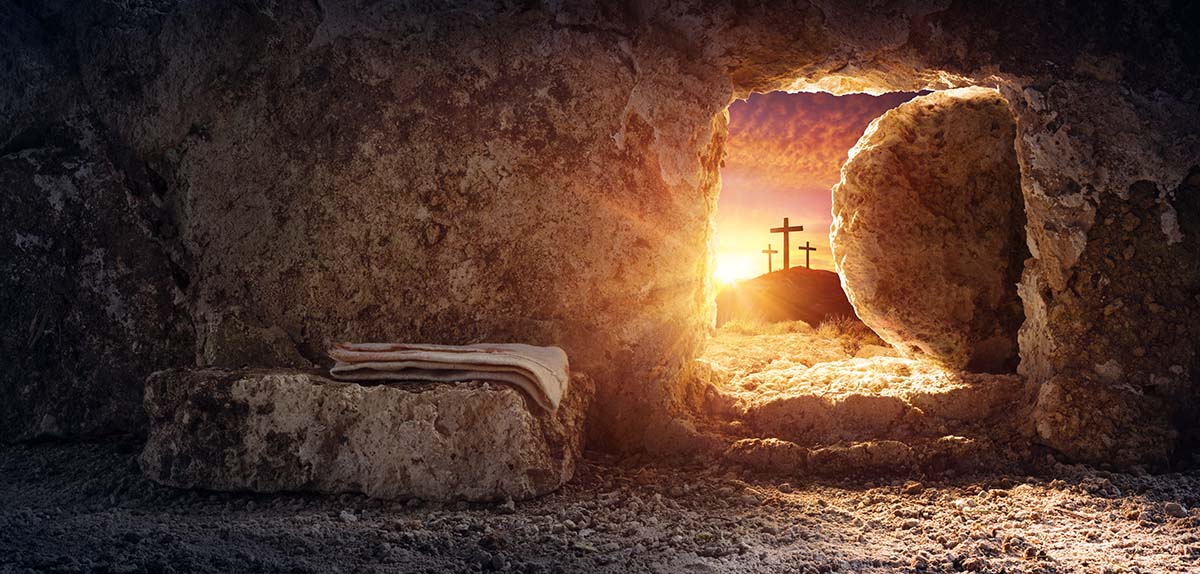
Question:
How do we actually know Jesus rose from the dead?
Answer:
Last month I said we were going to address people’s doubts that the Church’s teachings are Jesus’ teachings. However, given the timeliness of the question about the resurrection, we’ll address the question about the Church’s teachings next month.
 Asking about the resurrection is timely because we just celebrated Easter last month and are still in the midst of the Easter season. Beyond that, however, it’s a fitting question for the times in which we live, as traditional Christian teachings are exposed to ever greater scrutiny in our society. And this question in particular—the question of the truth of the resurrection of Jesus Christ—goes to the very heart of our faith.
Asking about the resurrection is timely because we just celebrated Easter last month and are still in the midst of the Easter season. Beyond that, however, it’s a fitting question for the times in which we live, as traditional Christian teachings are exposed to ever greater scrutiny in our society. And this question in particular—the question of the truth of the resurrection of Jesus Christ—goes to the very heart of our faith.
In certain scholarly circles over the last few decades, it’s become fashionable to question or even deny the fact of the Resurrection, and so in mass media we read or hear the theories of various theologians claiming the “true” meaning of the Resurrection is that after Jesus died, the Apostles “realized” the full meaning of Jesus’ teaching on the importance of loving and forgiving, or that the “true” meaning of the Resurrection is that Jesus is alive in the hearts of those who followed Him. But the idea that He actually rose from the dead in a glorified body? Myth, fable, fairy tales according to these theories.
In his first letter to the Christians of Corinth, St. Paul wrote this: “if Christ has not been raised, then empty is our preaching; empty, too, your faith.” (1 Corinthians 15:14) If Jesus is not alive, if He was not raised from the dead, then our Christian faith is empty, according to the great Apostle.
As St. Paul testifies, the truth of the Resurrection is at the very heart of our faith as Christians, and it has been so since the very beginning. Just a few sentences earlier St. Paul sets forth the heart of the Gospel, that which is of first importance: “that Christ died for our sins in accordance with the scriptures; that he was buried; that he was raised on the third day in accordance with the scriptures; that he appeared to Cephas [Peter], then to the Twelve.” (1 Cor 15:3-5) Or consider the sermon which St. Peter preached on Pentecost in the Acts of the Apostles, in which the Prince of the Apostles proclaims that God raised Jesus up after His crucifixion (cf. Acts 2:24). As we see here and elsewhere, from the very beginning the followers of Christ affirmed that He rose from the dead.
The facts of the empty tomb and the testimony of those who claim they saw the risen Lord only allow for a few possible interpretations, other than the actual truth of the Resurrection. Some argue Jesus didn’t actually die on the cross (the “swoon” theory); others claim the Apostles and other eyewitnesses were lying; others propose they had a series of mass hallucinations; and finally some hold that the eyewitnesses didn’t mean Jesus literally rose from the dead.
None of these arguments ultimately hold any water. As various scholars have shown (see the Additional Resources online at the link below), each of the proposed alternate explanations of the empty tomb and the testimony of the eyewitnesses have serious and ultimately fatal flaws, leaving only one valid explanation: Jesus Christ the Nazorean actually rose from the dead.
Personally, I am especially taken with the bold witness of the Apostles to the truth of Jesus’ bodily resurrection. Throughout the New Testament and other early Christian writings, we see that the Apostles claimed they had seen, talked to and ate with the risen Lord, and that they were to suffer torture and ultimately even death rather than deny this claim. Think about that: the Apostles said Jesus rose from the dead, and they maintained that even when threatened with death themselves. Their actions alone are incomprehensible if the Resurrection did not occur; who, after all, would willingly undergo ridicule, torture and death for a preposterous lie?
Remember, the resurrection of Jesus from the dead has incredible significance. It means that while we still experience pain, suffering and death, they do not have the last word. Jesus has conquered them, and He will share the fruits of that victory with us in our own resurrection at the end of time. And in the meantime, we can find peace and joy even in the midst of our earthly trials, knowing Jesus is really, truly alive.
 As we celebrate the Resurrection on Easter and throughout the Easter season, let us repeat the ancient paschal greeting: Christ is risen! He is risen indeed!
As we celebrate the Resurrection on Easter and throughout the Easter season, let us repeat the ancient paschal greeting: Christ is risen! He is risen indeed!
Be sure to check out the additional resources at sfcatholic.org/answer. If you have a question you need an answer to, email rkranz@sfcatholic.org.
Chris Burgwald holds a doctorate in theology and is the director of discipleship formation for the Diocese of Sioux Falls.


